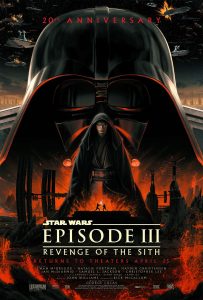Could it be that Lulu, the collaborative album between Lou Reed and Metallica, is the worst release of the year?
Experimental rock musician Lou Reed is mostly known for his involvement in The Velvet Underground, an art-rock band that performed on and off from the mid-1960s to 1996. He has also gained a reputation for a solo career consisting of eclectic rock music with elements of noise and avant-garde. Knowing this about Reed’s career, the last thing on anyone’s mind would be a collaborative effort with the household name in metal music, Metallica. However, the idea had been entertained by both parties as early as 2009.
When the project came to fruition in early 2011, it was declared a “recording project” and not a commercial venture. The result, Lulu, has received fiercely negative reactions by fans and critics since the first audio sample was released.The album was regarded by various sources, including Metacritic, as a failure long before it was released in its entirety. According to the Rolling Stone article “On the Charts: Justin Bieber Annihilates Loutallica,” sale figures for the album showed that it sold a mere 13,000 copies in its first week of release.
Amid Internet chatter citing disappointment and anger toward the album and its musicians, the question became: does Lulu have any saving grace?
The concept of Lulu is based on Frank Wedekind’s two plays which form a pairing entitled Lulu — Erdgeist (Earth Spirit) and Die Büchse der Pandora (Pandora’s Box) —which were controversial in their own right during 1894 and 1904, respectively, for perceived misogyny and violent content. The album does not execute the subject matter in the form of a story but loosely references it. In over 80 minutes of music across two discs, it feels like Metallica and Reed took thematic elements from the original Lulu, reiterated them in modern tongue, and rearranged songs written for the plays in an attempt to make them flow wholly. The best song on the album, closer “Junior Dad,” seems to feel out of place because it is unrelated to the original ending of the story, which involved Jack the Ripper killing Lulu and her lover. However, bloodletting and Jack are referenced in “Pumping Blood.”
Reed repeats lyrics seemingly on his own accord, which can be unbearable if the lines are vulgar or crude. In its own context, this has the potential for success, but not always.
Musically this is true as well. The bulk of the song “Mistress Dread,” for instance, consists of a fast, monotonous rhythm. The song “Little Dog” is poorly composed as nothing musically significant is going on. The instruments are mainly acoustic, but it does not even sound ambient or mellow.
Metallica frontman and rhythm guitarist James Hetfield’s vocals are diminished to the role of occasional backing vocalist. The lyrics he was given can be downright embarrassing, especially his yelling of “I am the table” on the song “The View.” Strangely, that lyric is not printed in the booklet. This brings into question the involvement of Metallica as a whole in this, as Lulu calls for music that is more rhythmic, sometimes ambient, and in the background. Why would two rhythm guitars be necessary, since most of the time Kirk Hammett does not do lead guitar work or solos?
The positive aspects of this album include its production, which was an improvement over Metallica’s last album, Death Magnetic. In terms of a rhythmic, narrative approach to music, Lulu does manage to work, with “Mistress Dread” having an ambient quality to its monotone consistency. The negative qualities of Lulu are its overt vulgarity, repugnances, repetition of phrases minutes too long, and lack of variation in Reed’s vocals.
Lulu is difficult to defend. There is a lot to dislike. However, this is not the worst album of the year. A bad album has to be boring. Lulu, ironically with all its repetitive aspects, piqued my curiosity from start to finish. This record was an experiment brought to the masses inevitably by Metallica’s fame, not because it is 2011’s worst album.







Be First to Comment